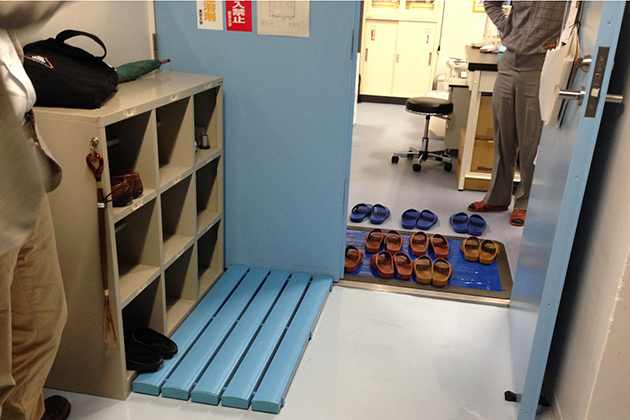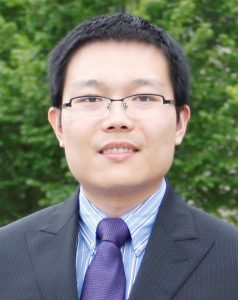 Dr. Ying Li is one of eight UConn faculty members, and three IMS faculty members, to receive a National Science Foundation Career CAREER Award in 2021. Li will develop a machine learning model to better understand the properties of a promising sustainable material.To learn more about the award Visit UConn Today.
Dr. Ying Li is one of eight UConn faculty members, and three IMS faculty members, to receive a National Science Foundation Career CAREER Award in 2021. Li will develop a machine learning model to better understand the properties of a promising sustainable material.To learn more about the award Visit UConn Today.
awards
Luyi Sun Awarded Spring 2016 Scholarship Facilitation Fund Award
By Rhonda Ward
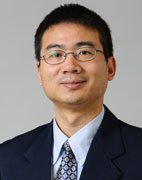
Dr. Luyi Sun is the recipient of a Spring 2016 Scholarship Facilitation Fund Award from the Office of the Vice President. for Research for Publication in Nature Communications, a Premium Open-access Journal for Maximum Impact. The Office of the Vice President for Research provides financial support up to $2,000 to faculty across all disciplines, on a competitive basis, to promote, support, and enhance the research, scholarship and creative endeavors of faculty at UConn. The Scholarship Facilitation Fund (SFF) is designed to assist faculty in the initiation, completion, or advancement of research projects, scholarly activities, creative works, or interdisciplinary initiatives that are critical to advancing the faculty member’s scholarship and/or creative works.
IMS Annual Newsletter 2016
Polymer Program Researchers Kelly Burke and Anson Ma Receive CT Regenerative Medicine Grant
By: Kelly A. Salzo
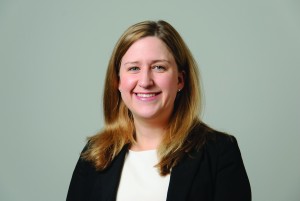
The CT Regenerative Medicine Research Fund Advisory Committee has awarded Dr. Kelly A. Burke (IMS/CBE) and Co-Investigator Anson W. K. Ma (IMS/CBE) a seed grant titled “Human intestine tissue model by 3D printing”. The grant will provide $200,000 for the research endeavor involving chemically modified silk proteins to be used for 3D printing, which will subsequently form stable hydrodels. These materials will be printed into intestine-like crypt structures and will incorporate cells from human intestine to improve understanding on how the geometry of the system alters the function of the cells. Dr. Burke is hopeful that “the data generated will not only advance our efforts in 3D printing soft materials, but will also enhance understanding of how cells interact and undergo repair processes in cultures with geometries that are more representative of the human intestine.” The applications of this research will be important to the study of intestine tissue models, which may be used to investigate disease progression and to develop therapeutics.
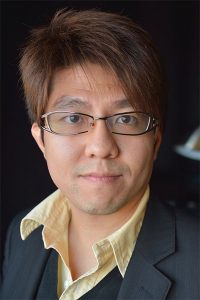
Dr. Kelly A. Burke received her Ph.D. in Macromolecular Science and Engineering from Case Western Reserve University in 2010. In 2014, she joined UConn as an assistant professor in the Chemical and Biomolecular Engineering Department and is a member of the IMS Polymer Program. Her research interests include synthesis and structure-property relationships of multifunctional polymeric materials, stimuli responsive polymers and networks, natural and synthetic biomaterials, and the design and application of polymeric systems to modulate inflammation and promote healing.
Dr. Anson W. K. received his Ph.D. in chemical engineering from the University of Cambridge in 2009. He joined UConn in 2011 as an assistant professor in the Chemical and Biomolecular Engineering Department and the IMS Polymer Program. As Principal Investigator for the Complex Fluids Laboratory, his research centers on understanding the complex flow behavior (rheology) and processing of various complex fluids including foams, emulsions, nanoparticle suspensions, and biological fluids.
IMS Researcher Anson Ma Receives 2015 Metzner Early Career Award
By: Kelly A. Salzo

Anson W. K. Ma (IMS/CBE), Assistant Professor in the Department of Chemical and Biomolecular Engineering, will receive the 2015 Arthur B. Metzner Early Career Award. This distinguished award, named after rheology pioneer Arthur B. Metzner, is distributed annually by the Society of Rheology to a young researcher “who has distinguished him/herself in rheological research, rheological practice, or service to rheology.” Dr. Ma will deliver a plenary lecture at the upcoming 87th Society of Rheology Annual Meeting in Baltimore, where he will receive a plaque and a $7,500 honorarium.
Anson W. K. Ma received his Ph.D. in Chemical Engineering from the University of Cambridge in 2009. He joined UConn in 2011 as a member of both the IMS Polymer Program and the Chemical Engineering Program. As Principal Investigator of the Complex Fluids Laboratory, his research focuses on understanding the complex flow behavior (rheology) and processing of various complex fluids including foams, emulsions, nanoparticle suspensions, and biological fluids. His lab is developing new techniques to improve the reliability and push the existing resolution limit of inkjet and 3D printing technology. Dr. Ma’s research on 3D printing has recently been featured on the front page of the Chronicle newspaper and Channel 8 News. In 2012, Dr. Ma received TA Instrument’s Distinguished Young Rheologist Award, which recognizes product innovation and research of new materials and applications that expand the field of rheology. The following year he received a prestigious NSF CAREER Award for his research on exploiting the size and shape of particles to improve the stability of emulsions typically found in agricultural, pharmaceutical, and personal care products. More recently, Dr. Ma is leading a major effort to establish a center of excellence for additive manufacturing of soft materials at UConn. The mission is to accelerate technology transfers to the industry and to provide an important training ground for future workforce in advanced manufacturing.
Sonia Chavez Receives the LSAMP Fellowship
By Kelly A. Salzo
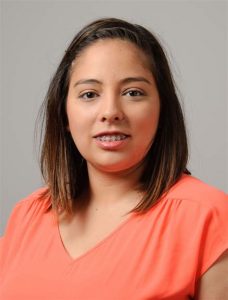
Graduate Student Sonia Chavez of the IMS Polymer Program has received the Louis Stokes Alliances for Minority Participation (LSAMP) Bridge to the Doctorate (BD) fellowship. Funded by the National Science Foundation (NSF), this program provides continued support for students who participated in an LSAMP program during their undergraduate, offering up to two additional years of STEM education at the graduate level.
Sonia’s fellowship is part of LSAMP’s initiative to encourage and support “historically under-represented students in the science, technology, engineering, and mathematics (STEM) fields.” During her undergraduate studies at DePaul University, Sonia became involved with the Chicago Initiative for Research and Recruitment in Undergraduate Science (CIRRUS), NSF’s STEM Talent Expansion Program (STEP), and the Society for Advancement of Hispanics/Chicanos and Native Americans in Science (SACNAS). Each organization shares a common goal to increasing the number of students graduating with STEM degrees, particularly students from populations currently underserving in these fields.
Sonia’s participation within these programs has provided her with opportunities to attend and organize support workshops for under-represented students. Additionally, she helped implement outreach activities to expose inner city children to science. By being awarded the LSAMP fellowship, Sonia hopes to continue her outreach and professional development, while devoting the rest of her time to
Douglas Adamson Joins TRI Board of Directors
By: Kelly A. Salzo
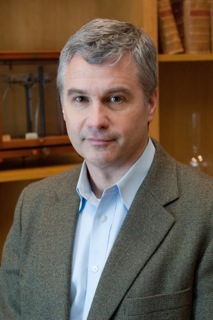
Dr. Douglas Adamson, (IMS/CHEM) Associate Professor in the Chemistry Department, has just been appointed to the board of directors of TRI/Princeton. Dr. Adamson joins a team dedicated to TRI’s mission of promoting the advancement of science and the enhancement of innovation, while pursuing potential contributions to society. The board of director’s diverse scientific disciplines allow for an interdisciplinary approach to surface science, materials science, optical measurement, and fluid/pore interaction. Doug becomes the only academic member of the board, with other members being senior scientists from companies such as DuPont, Johnson & Johnson, and Procter and Gamble.
TRI/Princeton is divided into a variety of laboratories and centers dedicated to serving industry, government, and academia. In addition to research, TRI’s Professional Education Program offers a variety of conferences, workshops and courses to provide its members with the tools to accommodate industry’s ever-changing needs. As their website explains, “We remain vigilant in seeking new opportunities and discoveries that will sustain the Institute into the future while remaining true to our principle of inspiring, educating and connecting through science.”
Young Scientist Exchange Takes UConn Researcher to Japan
Republished with permission of UConn Today
By Nan Cooper, SoE
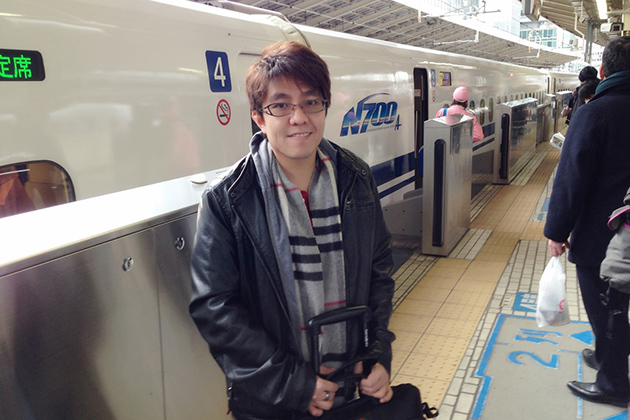
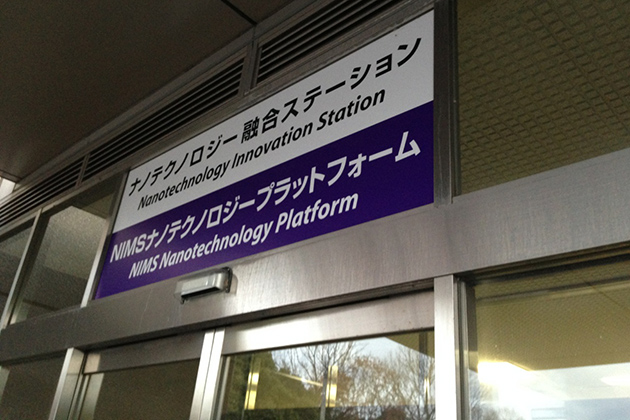
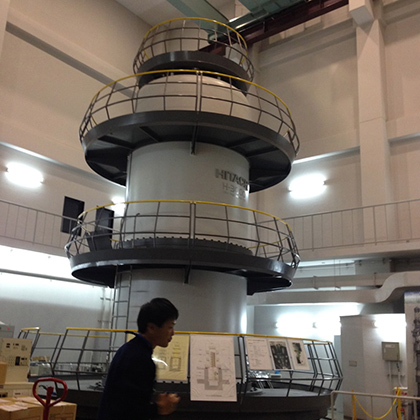
Professor Hidetoshi Kotera, executive vice-president of Kyoto University for external strategy, knowledge, and technology transfer and innovation, speaks about current research activities and future plans for the university.The exchange program focuses on bio-nano-micro technologies, and while the themes have remained constant since 2003, the application areas – for example, manufacturing, sensing, and energy – of the visits vary from year to year. When Japanese delegates come to the U.S., they visit various different U.S. universities during their exchange tours; in recent years, these have included UCLA, Caltech, MIT, Harvard, Northwestern, and the University of North Carolina.Ma says the experience was extremely worthwhile, noting that he met potential collaborators among the U.S. delegates as well as among the Japanese faculty. He found the work of three Japanese researchers particularly compelling. One is involved in biomechanics research focusing on the motion of cells, and another is developing a bioadhesive for creating 3-D tissue using cells as building blocks – “just like playing with Lego blocks,” says Ma. A third is developing advanced biomimetic materials.
